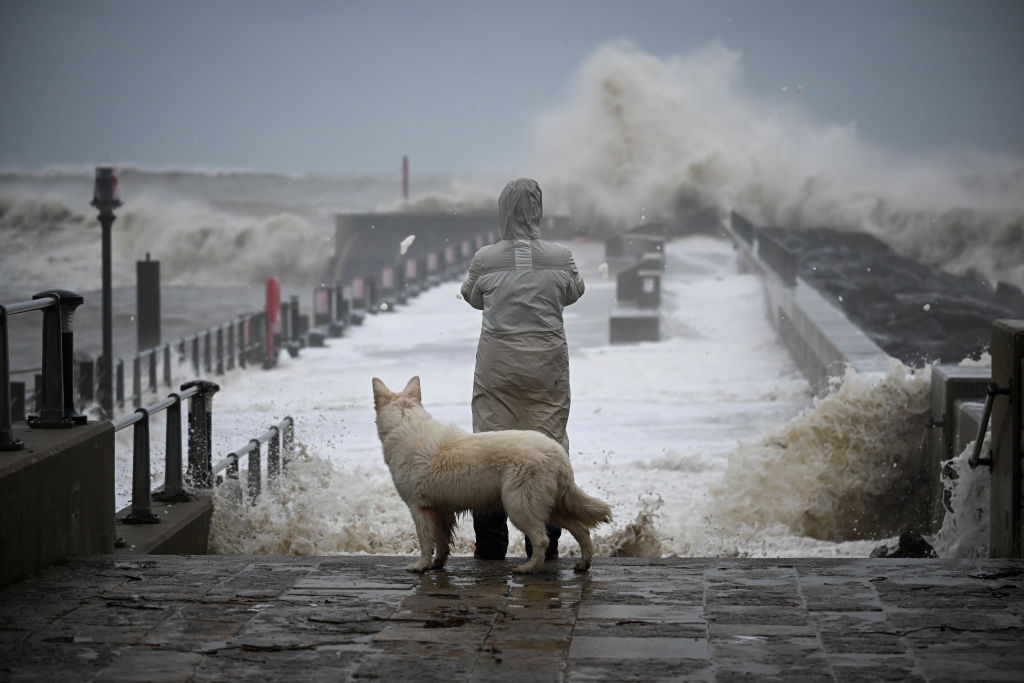
Planet A
A group of scientists have issued a stark warning that the planet is being pushed into a climate crisis that could threaten the lives of up to six billion people this century. In a report released last week in the journal Bioscience, 12 scientists from Asia, Europe and North America said that they were ‘shocked by the ferocity of the extreme weather events in 2023’.
The report provides a snapshot of the health of the earth measured against 35 ‘planetary vital signs’. The analysis shows that human activity has reached new extremes on 20 of these measurements, including global gross domestic product, fossil-fuel subsidies, annual carbon pollution and glacier thinning. A lead author on the report says: ‘We’re on our way to the potential collapse of natural and socioeconomic systems and a world with unbearable heat and shortages of food and freshwater.’
Record-breaking climate anomalies including extreme heat waves, floods and bushfires have rocked many parts of the world in recent years. Researchers have found that 14 of the large-scale disasters recorded in the past year were ‘definitely’ or ‘likely’ exacerbated by climate change, killing thousands and affecting millions.
Democracy watch
Several national and local governments in major European countries have banned pro-Palestinian protests and slogans that have arisen since the Israel–Hamas war began on 7 October. Citing the need to maintain public order and safety, these governments are testing the right to peaceful assembly and freedom of speech. Germany, France, Italy and Britain, along with the European Commission president, are among those who have offered their overwhelming support for Israel.
In Berlin, education authorities last week told schools that they could ban students from wearing the Palestinian Kufiya scarf and ‘free Palestine’ stickers. France is likewise cracking down on pro-Palestine sentiment, with its interior minister announcing that he had initiated judicial proceedings for ‘antisemitism, apologia for terrorism and support for Hamas’ against 11 organisations. Local authorities in France are also banning pro-Palestine protests on a case-by-case basis.
More than 8,000 Gazans and 1,400 Israelis are estimated to have been killed since the conflict started.
Information operations
Members of the Kuki-Zo and Meitei communities have taken to social media in a bid to shape narratives on the ethnic violence that has engulfed India’s northeastern state of Manipur since 3 May. The information operations range from campaigns brimming with misinformation, disinformation, hate, claims of victimhood and requests for solidarity.
The Meitei-controlled state government led by the Bharatiya Janata Party has used internet shutdowns to control the public narrative about the turmoil while Kuki activists mount a digital resistance. Analysis of the digital battlefield, largely fought on X, mapped 2,722 handles to 487 Meitei-affiliated accounts that often accuse the Kuki community of ‘narcoterrorism’ and 455 Kuki-affiliated accounts calling for a separate state.
Social media warriors on both sides feel that their communities have been wronged and will likely continue to press their versions of the story in an effort to win hearts and minds in the rest of India and the world.
Follow the money
Australia has reimposed financial sanctions and travel bans on 19 Iranian individuals and 57 entities for their role in Iran’s nuclear and missile programs. Announced earlier this month, the sanctions were previously imposed under a UN Security Council resolution and have now been listed under Australia’s autonomous sanctions framework.
The Australian government has long been concerned that Iran has violated the terms of the Joint Comprehensive Plan of Action and continued to expand its ballistic- and cruise-missile programs. The action by Australia will be matched by a range of international partners including the European Council, which has announced that it will take the ‘necessary steps to maintain the restrictive measures’ in place under the EU non-proliferation regime on Iran.
Iran’s missile program has raised tensions in an already volatile Middle East. Despite being heavily sanctioned, Tehran has been militarily and financially propping up Hamas and other terrorist groups such as Lebanese Hezbollah for years.
Terror byte
FBI director Christopher Wray has told the US Senate Committee on Homeland Security and Governmental Affairs that Hamas’s surprise invasion of Israel on 7 October could inspire large-scale terrorist attacks against Americans and the West. The remarks came as other US officials reported an increase in threats made against Jewish, Muslim and Arab Americans since the start of the Israel–Hamas war.
US government concern over ‘historic levels’ of homegrown violent extremism may have reached new heights over the past few weeks, but the tempo of anti-Semitic acts in the US has surged in recent years. Three of the past five audits of anti-Semitic incidents in America conducted by the Anti-Defamation League have recorded unprecedented numbers.
This trendline is reflected in a recent survey, which found that 20% of Americans believe six or more anti-Jewish tropes, more than double the rate reported in 2019 and the highest level measured in decades—a dire situation given the spread of white-supremacist propaganda and new nationalist groups across the country.

